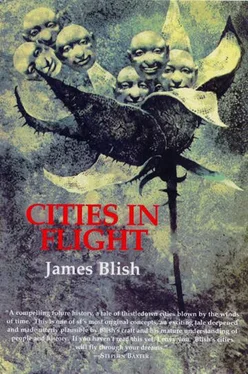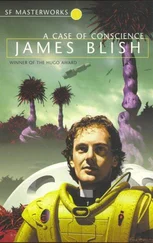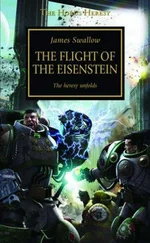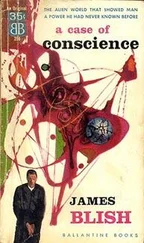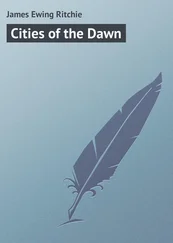James Blish - Cities in Flight
Здесь есть возможность читать онлайн «James Blish - Cities in Flight» весь текст электронной книги совершенно бесплатно (целиком полную версию без сокращений). В некоторых случаях можно слушать аудио, скачать через торрент в формате fb2 и присутствует краткое содержание. Жанр: Фантастика и фэнтези, на английском языке. Описание произведения, (предисловие) а так же отзывы посетителей доступны на портале библиотеки ЛибКат.
- Название:Cities in Flight
- Автор:
- Жанр:
- Год:неизвестен
- ISBN:нет данных
- Рейтинг книги:4 / 5. Голосов: 1
-
Избранное:Добавить в избранное
- Отзывы:
-
Ваша оценка:
- 80
- 1
- 2
- 3
- 4
- 5
Cities in Flight: краткое содержание, описание и аннотация
Предлагаем к чтению аннотацию, описание, краткое содержание или предисловие (зависит от того, что написал сам автор книги «Cities in Flight»). Если вы не нашли необходимую информацию о книге — напишите в комментариях, мы постараемся отыскать её.
Cities in Flight — читать онлайн бесплатно полную книгу (весь текст) целиком
Ниже представлен текст книги, разбитый по страницам. Система сохранения места последней прочитанной страницы, позволяет с удобством читать онлайн бесплатно книгу «Cities in Flight», без необходимости каждый раз заново искать на чём Вы остановились. Поставьте закладку, и сможете в любой момент перейти на страницу, на которой закончили чтение.
Интервал:
Закладка:
Back home, Helmuth remembered, there had been talk of starting another Bridge on Saturn, and perhaps later still on Uranus too. But that had been politicians’ talk. The Bridge was almost five thousand miles below the visible surface of Jupiter’s atmosphere—luckily in a way, for at the top of that atmosphere the temperature was 76º Fahrenheit colder than it was down by the Bridge, but even with that differential the Bridge’s mechanisms were just barely manageable. The bottom of Saturn’s atmosphere, if the radiosonde readings could be trusted, was just 16,878 miles below the top of the Saturnian clouds one could see through the telescope, and the temperature down there was below —238° F. Under those conditions, even pressure-ice would be immovable, and could not be worked with anything softer than itself.
And as for a Bridge on Uranus ….
As far as Helmuth was concerned, Jupiter was quite bad enough.
The beetle crept within sight of the end of the Bridge and stopped automatically. Helmuth set the vehicle’s “eyes” for highest penetration, and examined the nearby I-beams.
The great bars were as close-set as screening. They had to be, in order to support even their own weight, let alone the weight of the components of the Bridge. The gravity down here was two and a half times as great as Earth’s.
Even under that load, the whole webwork of girders was flexing and fluctuating to the harpist-fingered gale. It had been designed to do that, but Helmuth could never help being alarmed by the movement. Habit alone assured him that he had nothing to fear from it.
He took the automatic cut-out of the circuit and inched the beetle forward on manual control. This was only Sector 113, and the Bridge’s own Wheatstone scanning system—there was no electronic device anywhere on the Bridge, since it was impossible to maintain a vacuum on Jupiter—said that the trouble was in Sector 114. The boundary of that sector was still fully fifty feet away.
It was a bad sign. Helmuth scratched nervously in his red beard. Evidently there was cause for alarm—real alarm, not just the deep grinding depression which he always felt while working on the Bridge. Any damage serious enough to halt the beetle a full sector short of the trouble area was bound to be major.
It might even turn out to be the disaster which he had felt lurking ahead of him ever since he had been made foreman of the Bridge —that disaster which the Bridge itself could not repair, sending a man reeling home from Jupiter in defeat.
The secondaries cut in, and the beetle hunkered down once more against the deck, the ball-bearings on which it rode frozen magnetically to the rails. Grimly, Helmuth cut the power to the magnet windings and urged the flat craft inch by inch across the danger line.
Almost at once, the car tilted just perceptibly to the left, and the screaming of the winds between its edges and the deck shot up the scale, sirening in and out of the soundless-dogwhistle range with an eeriness which set Helmuth’s teeth on edge. The beetle itself fluttered and chattered like an alarm-clock hammer between the surface of the deck and the flanges of the tracks.
Ahead there was still nothing to be seen but the horizontal driving of the clouds and the hail, roaring along the length of the Bridge, out of the blackness into the beetle’s fanlights, and onward into darkness again toward the horizon which, like the Bridge itself, no eye would ever see.
Thirty miles below, the fusillade of hydrogen explosions continued. Evidently something really wild was going on down on the surface. Helmuth could not remember having heard so much vulcanism in years.
There was a flat, especially heavy crash, and a long line of fuming orange fire came pouring down the seething air into the depths, feathering horizontally like the mane of a Lipizzan stallion, directly in front of Helmuth. Instinctively, he winced and drew back from the board, although that stream of flame actually was only a little less cold than the rest of the storming, streaming gases, and far too cold to injure the Bridge.
In the momentary glare, however, he saw something: an upward twisting of shadows, patterned but obviously unfinished, fluttering in silhouette against the lurid light of the hydrogen cataract.
The end of the Bridge.
Wrecked.
Helmuth grunted involuntarily and backed the beetle away. The flare dimmed; the light poured down the sky and fell away into the raging sea of liquid hydrogen thirty miles below. The scanner clucked with satisfaction as the beetle recrossed the danger line into Sector 113.
Helmuth turned the body of the vehicle 180 degrees on its chassis, presenting its back to the dying orange torrent. There was nothing further that he could do at the moment for the Bridge. He searched his control board—a ghost image of which was cast on the screen across the scene on the Bridge—for the blue button marked Garage, punched it savagely, and tore off his foreman’s helmet.
Obediently, the Bridge vanished.
CHAPTER THREE: New York
Does it not appear as if one who lived habitually on one side of the pain threshold might need a different sort of religion from one who habitually lives on the other?
—WILLIAM JAMEST HE GIRL— whose full name, Paige found, was Anne Abbott—looked moderately acceptable in her summer suit, on the left lapel of which she wore a model of the tetracycline molecule with the atoms picked out in tiny synthetic gems. But she was even less inclined to talk when he picked her up than she had been in Pfitzner’s reception room. Paige himself had never been expert at making small talk, and in the face of her obvious, continuing resentment, his parched spring of social invention went underground completely.
Five minutes later, all talk became impossible anyhow. The route to the restaurant Paige had chosen lay across Foley Square, where there turned out to be a Believer Mission going. The Caddy that Paige had hired—at nearly a quarter of his leave-pay, for commercial kerosene-fueled taxis were strictly a rich man’s occasional luxury—was bogged down almost at once in the groaning, swaying crowd.
The main noise came from the big plastic proscenium, where one of the lay preachers was exhorting the crowd in a voice so heavily amplified as to be nearly unintelligible. Believers with portable tape recorders, bags of tracts and magazines, sandwich-boards lettered with fluorescent inks, confessions for sinners to sign, and green baize pokes for collections were well scattered among the pedestrians, and the streets were crossed about every fifteen feet with the straight black snakes of compressed-air triggers.
As the Caddy pulled up for the second time, a nozzle was thrust into the rear window and a stream of iridescent bubbles poured across the back seat directly under Paige’s and Anne’s noses. As each bubble burst, there was a wave of perfume-evidently it was the “Celestial Joy” the Believers were using this year—and a sweet voice said:
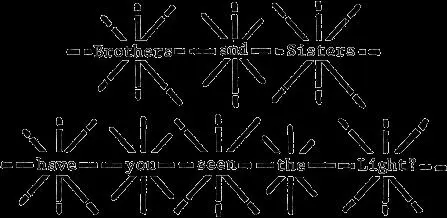
Paige fought at the bubbles with futile windmillings, while Anne Abbott leaned back against the cushions of the Caddy and watched him with a faint smile of contemptuous amusement. The last bubble contained no word, but only an overpowering burst of perfume. Despite herself, the girl’s smile deepened: the perfume, in addition to being powerfully euphoric, was slightly aphrodisiac as well. This year, apparently, the Believers were readier than ever to use any means that came to hand.
The driver lurched the Caddy ahead. Then, before Paige could begin to grasp what was happening, the car stopped, the door next to the steering wheel was wrenched open, and four spidery, many-fingered arms plucked the driver neatly from his seat and deposited him on his knees on the asphalt outside.
Читать дальшеИнтервал:
Закладка:
Похожие книги на «Cities in Flight»
Представляем Вашему вниманию похожие книги на «Cities in Flight» списком для выбора. Мы отобрали схожую по названию и смыслу литературу в надежде предоставить читателям больше вариантов отыскать новые, интересные, ещё непрочитанные произведения.
Обсуждение, отзывы о книге «Cities in Flight» и просто собственные мнения читателей. Оставьте ваши комментарии, напишите, что Вы думаете о произведении, его смысле или главных героях. Укажите что конкретно понравилось, а что нет, и почему Вы так считаете.
